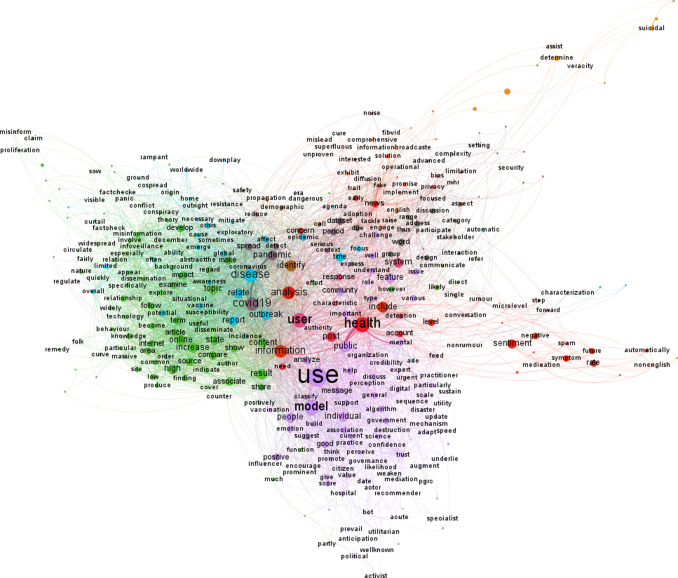
# The Fight Against Health Misinformation: An Urgent Plea for Medical Professionals
In 2019, a mother in the U.S. found herself at a hospital, her feverish child in her arms, tears flowing down her cheeks. A few months prior, she had declined a routine vaccination after reading an online post that warned of toxins and potential developmental harm. This article, which circulated widely on social media, had no credible backing. Now, her child was battling a preventable illness.
This situation is not unique. It represents a chilling illustration of the growing threat posed by medical misinformation—incorrect or deceptive health information that propagates more rapidly than the truth, with potentially fatal results. The World Health Organization (WHO) has labeled this occurrence an “infodemic,” a crisis where misinformation diminishes public trust, causes avoidable suffering, and jeopardizes global health.
## The Surge of Health Misinformation in the Digital Era
Misinformation surrounding health is not a recent phenomenon. For centuries, unfounded cures and pseudoscientific claims have misled the public. However, the rise of social media has intensified the problem, turning it into a crisis. Platforms like Facebook, YouTube, and TikTok allow misinformation to reach vast audiences almost instantly, frequently eclipsing verified medical truths.
During the COVID-19 outbreak, a study published in *Nature Human Behaviour* revealed that a mere 12 individuals were accountable for approximately 65% of anti-vaccine messages shared on social media in 2021. This digital blaze incited vaccine skepticism, overwhelmed health facilities, and diminished trust in public health organizations.
What drives the rapid spread of misinformation? False health assertions often trigger strong emotional reactions—fear, hope, or anger—making them prone to sharing. For instance, viral rumors suggesting that COVID-19 vaccines included microchips proliferated by preying on personal fears, despite their clear falsehood. Meanwhile, well-reasoned, evidence-based medical explanations frequently struggled to garner attention.
## Physicians’ Role in Fighting Misinformation
Healthcare professionals, including doctors and nurses, are at the forefront of combating misinformation, yet many are reluctant to participate in online discussions. Studies indicate that while 72% of Americans seek health advice via social media, only a minority of health care providers are actively engaging on these platforms. This creates a space that misinformation can easily fill.
Nonetheless, some physicians are rising to the challenge. Consider Dr. Austin Chiang, a gastroenterologist and Chief Medical Social Media Officer at Jefferson Health. On TikTok, he debunks myths about digestive health and simplifies complex medical information in a relatable way. His strategy illustrates how medical professionals can effectively use digital platforms to counter misinformation.
Enhancing physician involvement in social media can help reclaim public narratives, ensuring that accurate, science-based health information is readily available.
## Education: A Significant Weapon Against Misinformation
A primary reason misinformation proliferates is that many individuals lack the ability to discern trustworthy sources from misleading ones. Healthcare professionals can tackle this problem by fostering digital health literacy.
Medical experts can:
– Urge patients to verify information from reliable sources such as the CDC or WHO.
– Educate the public on common signs of misinformation, including exaggerated assertions, absence of citations, and emotionally loaded language.
– Provide community education initiatives to arm individuals with critical thinking skills to assess online health advice.
Programs like the Mayo Clinic’s public outreach initiatives, which teach individuals how to evaluate online health data, highlight how empowering communities can alleviate the detrimental effects of misinformation.
## Addressing Systemic Challenges
Despite the pressing need for physician participation, obstacles remain. Many healthcare providers are overwhelmed by their clinical duties, leaving scant time for digital advocacy. This underscores the importance of systemic support:
– **Medical schools and training institutions** should incorporate digital health communication as an essential skill, preparing upcoming physicians to navigate and counter misinformation online.
– **Collaborations with technology companies** can aid in promoting accurate health content. For example, Google’s partnership with the WHO ensures reliable COVID-19 information is prominently displayed in search results.
– **Regulatory changes** are essential to hold social media platforms accountable. Algorithms that favor engagement over accuracy often amplify sensational misinformation. The healthcare sector must advocate for policies that balance free speech with public health responsibilities.
## A Moral Responsibility: Battling Misinformation to Protect Lives
Combating medical misinformation is not just a professional obligation; it is an ethical imperative. Lives are in jeopardy. The truthfulness of the health information we disseminate, the trust we cultivate, and the education we provide have a direct effect on both individual and public health.
Now is the moment for medical professionals to take a stand. Misinformation flourishes in silence. By utilizing digital platforms, engaging with the community, and encouraging evidence-based dialogues, physicians can help reclaim the territory currently held by misinformation.
The future of public health relies on it.